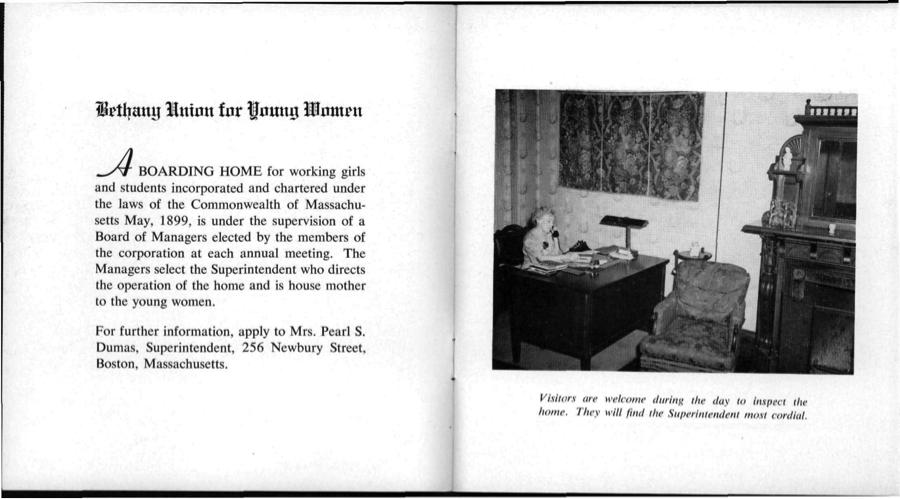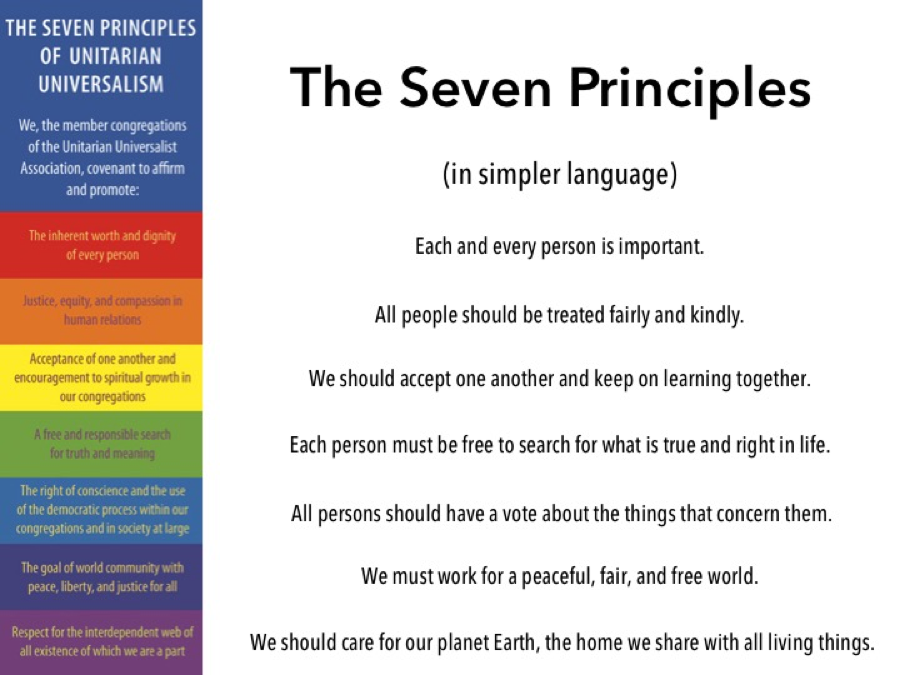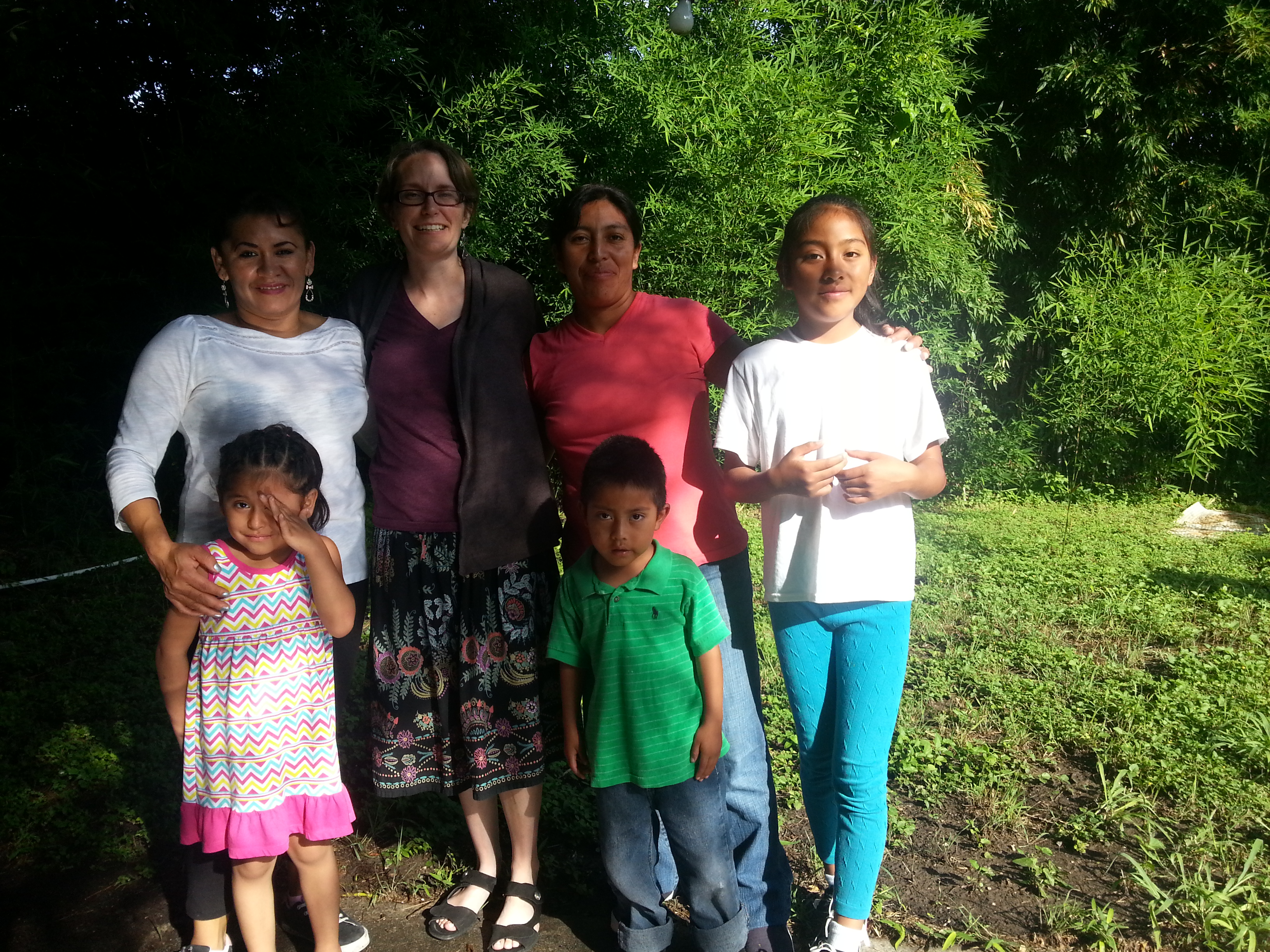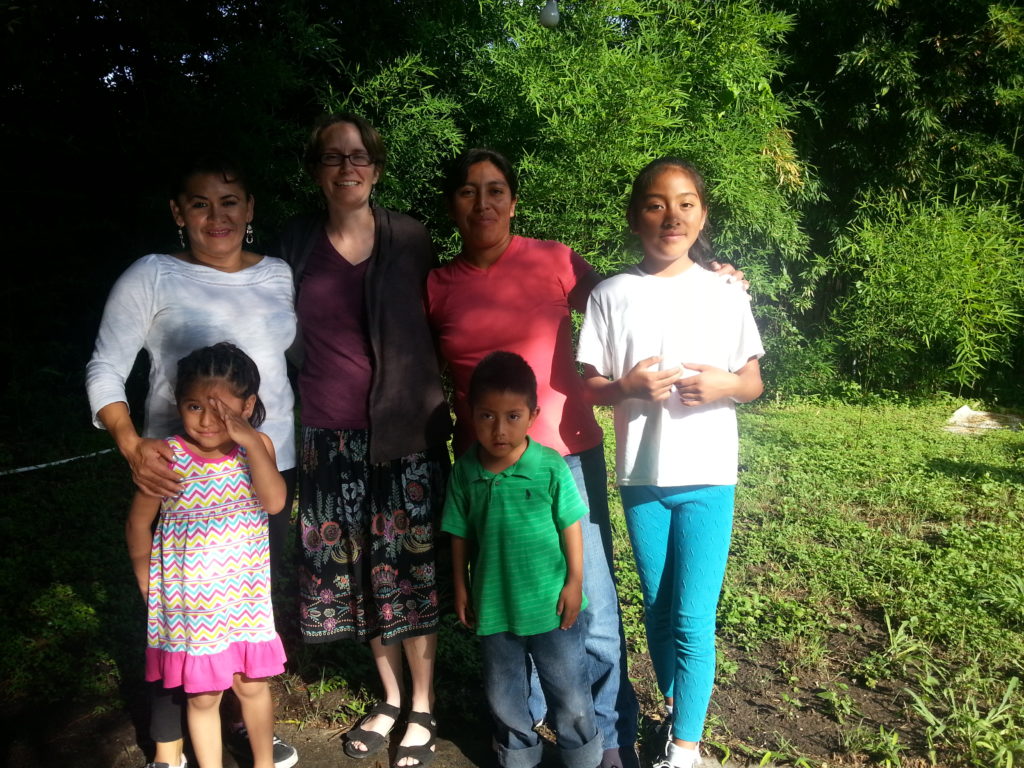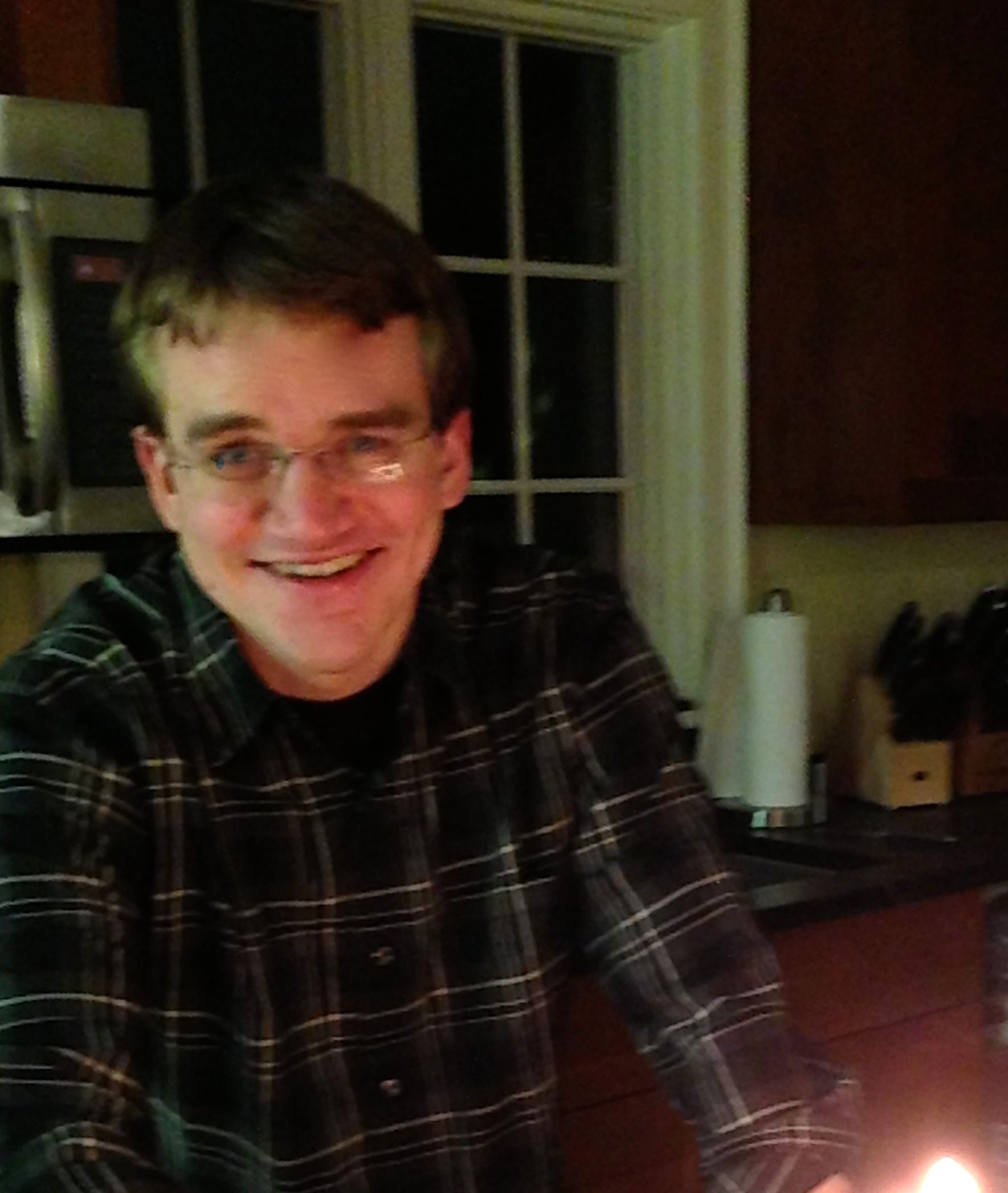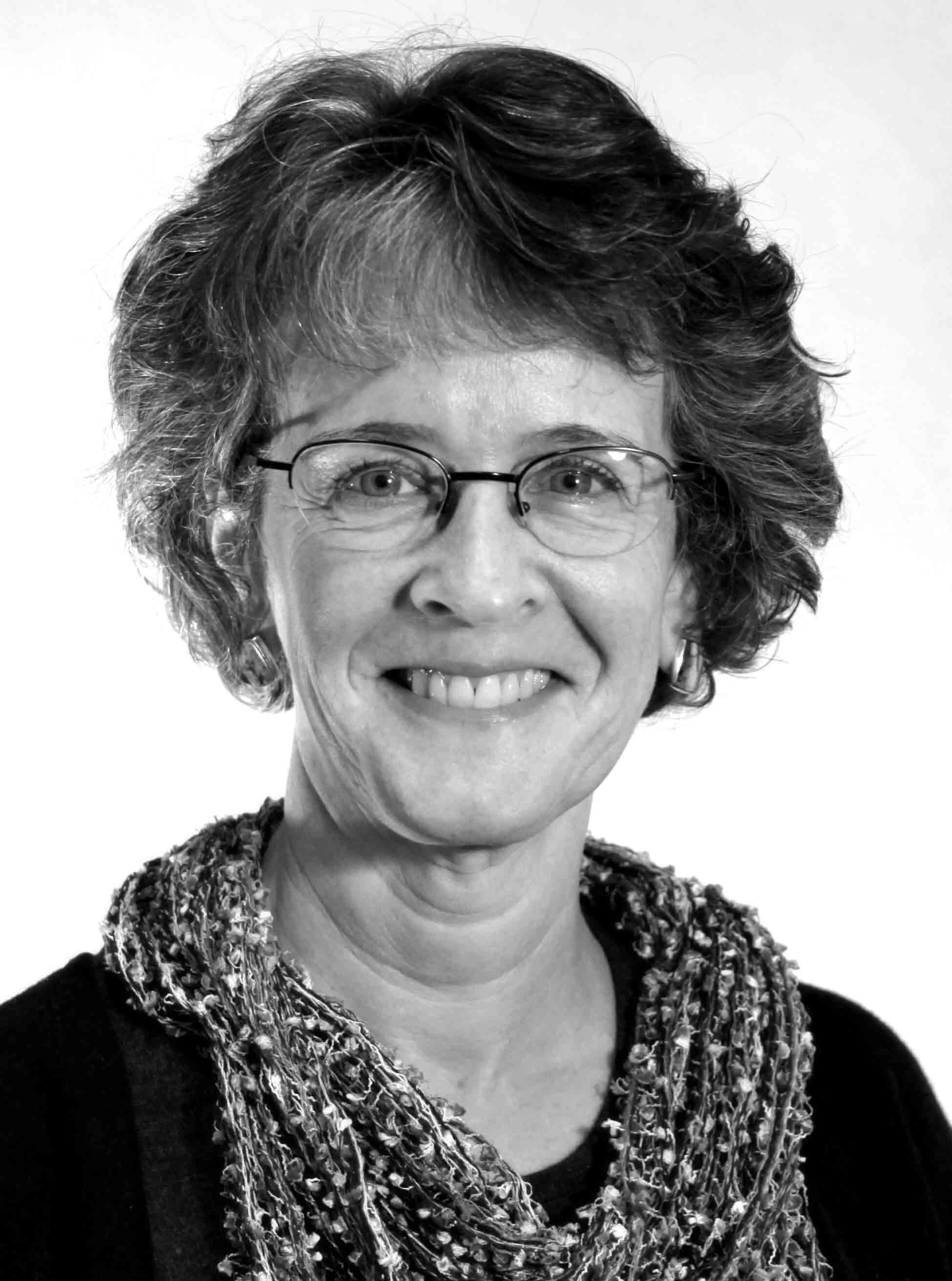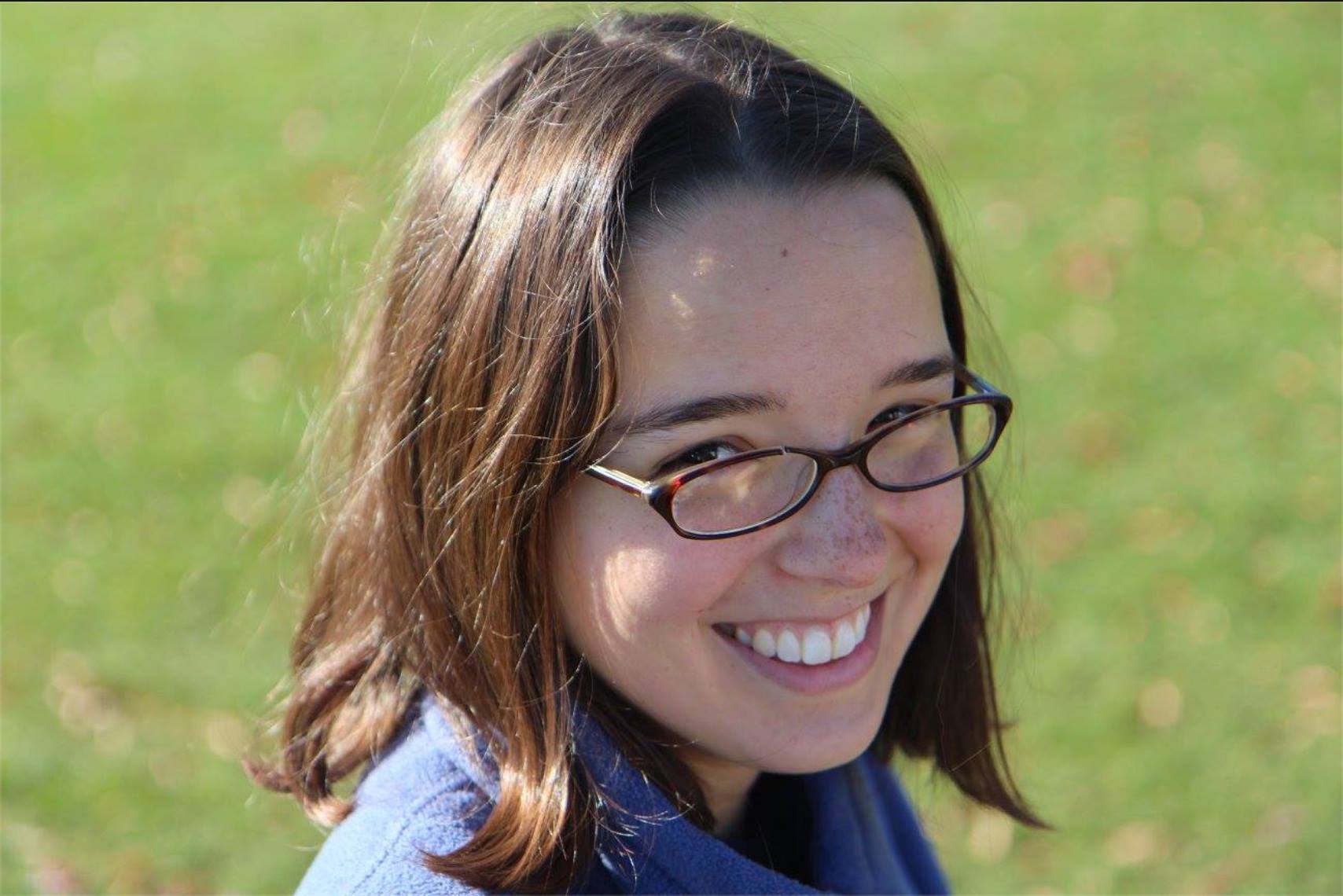
Transition and Transformation at Bethany House in Boston
This post was written by one of our 2015 interns, Ruth Hanna.
A page from a brochure for the Bethany Union for Young Women (not dated, but probably pre-1950). Courtesy of the Andover Harvard Theological Library, Harvard Divinity School.
I came across this brochure while sifting through a mass of old documents about Bethany House in the archives of the Andover-Harvard Theological Library. Reading some of the old rules — “all lights in rooms must be put out at 11 o’clock PM” — was a humorous reminder of how much Bethany House has changed since its founding in the late 1800s. Yet despite changes in rules, location, and ownership — Bethany is now a program of the Unitarian Universalist Urban Ministry — the mission has remained constant: to provide safe and affordable housing to women in transitional and transformational periods of their lives.
This focus on transition and transformation was part of what attracted me to Bethany. Having just reached the halfway mark of my college career, the prospect of a summer exploring my interest in affordable housing, living in downtown Boston, and reconnecting with my Unitarian Universalist roots was refreshing. Although I grew up attending First Parish in Bedford, a UU congregation outside of Boston, and still identify as a UU, I hadn’t actively engaged with UU communities in years.
In mid-June, I moved into my room at Bethany, where I would stay during my internship. Quickly, my fourth-floor room overlooking Newbury Street – one of the most beautiful streets in the city – felt comfortable. Living in the house turned out to be essential to my experience at Bethany. Although my family lives in Boston as well, it was through my role as a resident that I started to get a feel for the rhythm of the house, where forty-five women share meals, rooms, and friendships.
As a UU College of Social Justice intern, one of my main projects was finding ways to incorporate the Unitarian Universalist principles into the Bethany House community. To this end, I created a series of discussions about the UU principles, the UU Urban Ministry, and Bethany House.
One of the slides from my presentation, explaining the seven principles of Unitarian Universalism. They appear in full on the left (in rainbow) and in a simpler form on the right.
Spending so many hours pondering and discussing the UU principles pushed me to consider how I live out these principles in my own life. The first and last principles — the inherent worth and dignity of every person, and respect for the interdependent web of all creation of which we are a part — have always been my favorite principles. They pair together so well: in the first principle, the focus is on the deep and inherent value of each person, while the last principle reminds us that we are each just a small part of a vast interdependent web of life.
Yet over the summer, I also came to appreciate some of the principles that I had previously overlooked. In particular, the fourth principle — a free and responsible search for truth and meaning — spoke to me, as I often felt that my summer was a summer of seeking and listening. My internship duties called me to seek out ways to further the mission of Bethany House and the UUUM. But beyond that, living at Bethany meant talking with other residents over dinner, diving into an endless pile of books from the Boston Public Library, biking along the Esplanade, and hanging out with my roommate on hot summer nights. All these experiences, though outside of the formal duties of my internship, have pointed me towards that search for truth and meaning, making this summer truly transformational.

